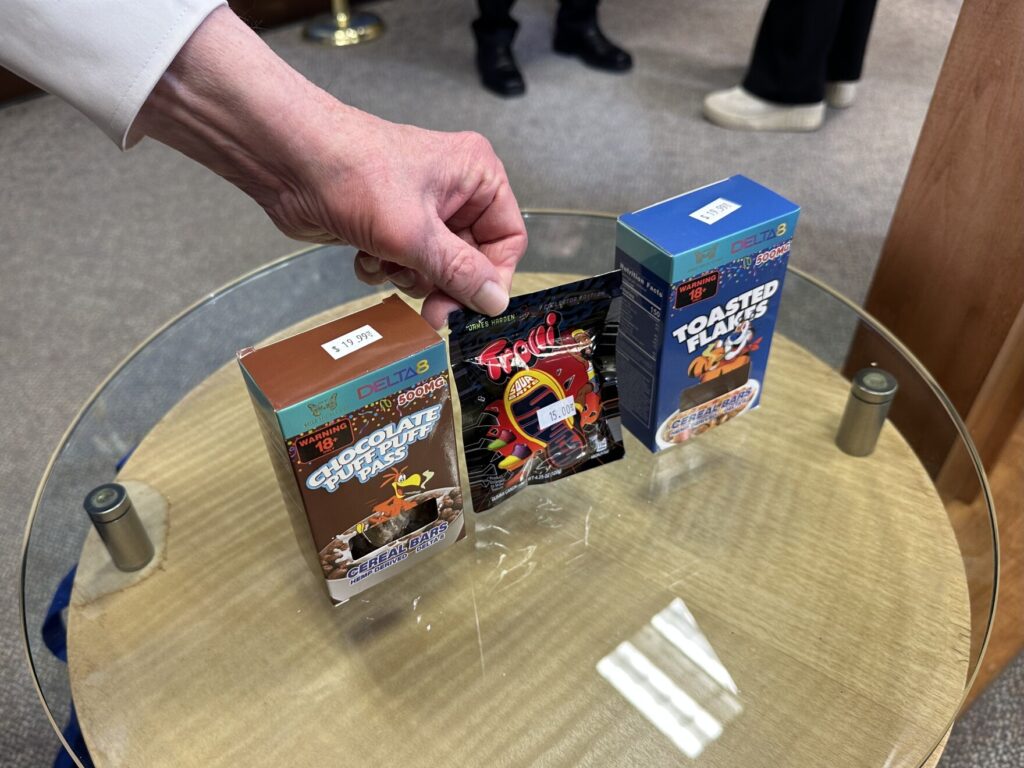For some state lawmakers, passing a bill on delta-8 THC and other similar products is high on the list of priorities this lame duck legislative session.
Gov. Mike DeWine has begged them to do something for a year, but legislative leaders still differ on how to handle the gray area the federal Farm Bill created in 2018. It removed cannabis products with less than 0.3 percent delta-9 THC from the definition of marijuana. Some products contain ingredients that still induce a high, but are unregulated statewide and legal at any age.
Outgoing Senate President Matt Huffman (R-Lima) said he would back an altogether ban, like what’s in Senate Bill 326—prohibiting sales and establishing criminal penalties.
“In my mind, these are products that aren’t illegal but probably should be. Some of them are new,” Huffman said last Wednesday. “We know that children are buying these, we know it’s marketed to children. This is sort of reminiscent of the bath salts discussion.”
But outgoing House Speaker Jason Stephens (R-Kitts Hill) said Tuesday that’s more “challenging” than just putting age restrictions on the products.
Heavy lobbying on both sides
Interests on both sides of the argument are, and have been, hitting lawmakers’ offices in droves.
At large, marijuana industry members want a stricter mandate, like what Sen. Steve Huffman (R-Tipp City) proposes in SB 326.
Chris Lindsey, a policy director for the American Trade Association of Cannabis and Hemp, said in an interview Tuesday that Ohio is one of only a handful of states to still have zero regulations on the books.
“The harms associated with the production and sale of unregulated synthetic THC are enough that we just need to stop these sales,” Lindsey said. “If there is an appetite later to try to look at incorporating them into the system, I think that that’s appropriate.”
It’s likely sales skyrocketed, Lindsey said, when recreational marijuana went legal.
“Suddenly now, there’s this market in products that really have nothing to do with the legalization program, but they’re aimed at consumers who are basically led to believe this is about the same thing,” he said.
Brian Wingfield, who owns dispensaries chain Ohio Cannabis Co., said in an interview he thinks the products should be put through the same licensing and regulation processes as what he sells.
“There are onions or lettuce being recalled from fast food restaurants and they have a tracking system. And this wild, wild west … is unregulated, untraced, untested,” Wingfield said.
Nearly two dozen proponents—mostly among the marijuana or health care industries—testified in front of the Senate General Government committee Tuesday afternoon. The opponents will get their go at it after Thanksgiving.
Retailers that sell delta-8 THC and other similar products, including gas stations, are staunchly against a ban.
At one glass and smoke store near Ohio State University, a sign set near the cash register Tuesday night urged customers to call their state senators and advocate against the bill. “Thousands of jobs and businesses could go out of business overnight,” the sign warned in part, with office phone numbers for legislators below.
Some lawmakers have said whatever bill moves—if one does move—should be narrowly tailored to prevent hurting retailers selling non-intoxicating products, like CBD gummies.
H/T: www.statenews.org



